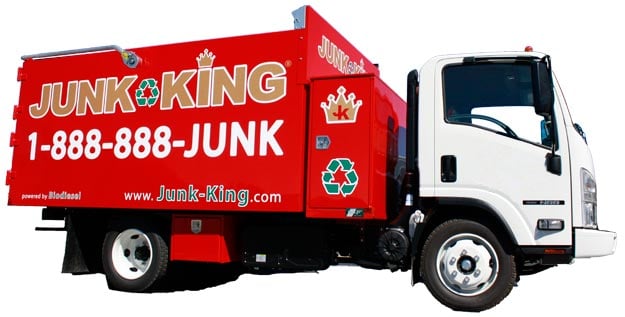
Of all the types and categories of debris removal that occur on a construction site, concrete waste disposal can be the most problematic. Depending on the type and size of the project, concrete rubble and debris can make up a huge percentage of the waste that has to be dealt with. And concrete is notoriously difficult because of its weight and bulk.
Getting More from Your Concrete Waste Disposal Chore
For very large construction enterprises, the prospect of removing and hauling tons of broken up concrete may not present a challenge. For a mid-sized and smaller firms, concrete can be a pain. Sometimes literally. It has been estimated that over a third of construction related fatalities occur do to falls. By far, the largest number of injuries are due to trips and falls. Much of this is caused by debris and rubble on a site.
Concrete disposal is difficult and even dangerous because it is heavy and unwieldy. Even transporting concrete debris can be a challenge. Most contractors will find that their choice for concrete disposal comes down to two options:
- They can use their own trucks and crew and do it themselves
- They can hire someone else to come in and do it for them
The first option: The DIY approach
This involves some logistics and pre-planning if you’re going to do it safely and efficiently. Depending on the size of the job and the volume of concrete waste involved, it can be a challenging and even formidable task, especially for the smaller contractor with limited vehicles and manpower.
On top of that, there is usually re-bar and other metals to be handled, as well as potentially hazardous waste materials attached to or mixed in with the concrete debris. In other words, it’s not a simple “sweep up and toss out” type of job. In California, for example, although not normally classified as a hazardous waste product, the rules defining concrete and masonry materials can be confusing.
Based on standards established by the EPA, if a material has a pH greater than 12.5, which applies to cement, it is considered a corrosive material and, by definition, a hazardous material. However, a hazardous material and hazardous waste are not always one and the same!
What this means for a contractor is that the proper disposal of concrete involves much more than simply tossing it in the back of a truck and hauling it off to the landfill.
Option number two: Outsourcing your concrete waste disposal
A contractor has a couple of choices when it comes to “outsourcing” the task of concrete waste disposal. For example, you could simply hire a local guy with an old truck and then hope it gets done right and doesn’t take too long. While this can be a viable option, you have a higher risk of running into additional problems using this strategy.
There are the real issues of safety risks, potential for damage or theft, liability, and other legal risks. In other words, the possibility of getting it done cheaper could end up costing you far more than you bargained for. In the event that something bad happens, that guy in a pickup truck could end up costing you a great deal more in the end in terms of both time and money.
Making Concrete Waste Disposal Work for You
While it’s a good practice to keep any construction material out of the landfill, if possible, the durability and potential for reuse makes concrete debris a great candidate for recycling. Some of the benefits of having your waste concrete recycled include:
- Reduced costs of removing and hauling
- Elimination of high landfill fees
- Contributes to the production of lower-cost recycled aggregate products
And aside from the economics of choosing a firm to take your concrete debris to a recycling plant, there are a variety of benefits in recycling concrete rather than dumping it or burying it in a landfill, such as:
- Keeping concrete debris out of landfills saves landfill space
- Using recycled material as gravel reduces the need for gravel mining
- Using recycled concrete as the base material for roadways reduces the pollution involved in trucking material to a site
However, getting it off-site and hauled away is still a potentially costly and time-consuming proposition if you choose to do it yourself, so outsourcing this work to a reliable and professional hauling firm will provide you with the most benefit.
Getting It Done Right – Hiring a Professional
Ultimately, the best option of all is to outsource your concrete disposal to a professional, licensed firm such as Junk King, and rest assured that any disposal of concrete will be handled safely, quickly and properly. Because concrete is a great candidate for recycling, you can also know that your concrete debris will be put to the best uses possible.
Junk King provides an efficient, safe and eco-friendly construction waste disposal service so you don’t need to worry about the pick up or disposal of the debris after your project is complete. Whether you need our services several times during a construction project or just once after it is complete, our hauling professionals will ensure that the construction debris is out of your way so that you can get on with the job.
Our team specializes in concrete waste disposal. We can be at your facility in mere minutes, so call us today! Our crew is fully insured and well-trained, so you can trust them to get rid of your debris in a professional and courteous fashion. One of the best things about hiring Junk King is that we recycle a much of the material we pick-up. This is proof of our commitment to being an eco-friendly removal service. If you have questions about what we do or what we believe, give us a call at (707) 744-4254.

